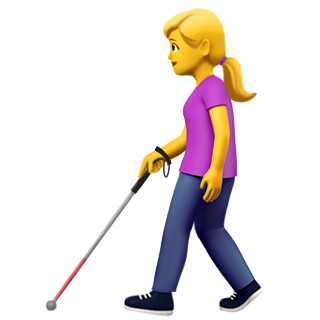
Apple has proposed a number of emojis to the Unicode Consortium, the emoji gatekeeper of sorts, to better represent people with disabilities. That’s because Apple is unable to include these emojis in iOS and Mac OS until the Consortium adopts them.
The proposed emojis depict people who experience blindness or low-vision, those who experience deafness or have trouble hearing, those with physical disabilities, as well as those with hidden disabilities like Autism, anxiety and PTSD.
Here are the proposed emoji:
“At Apple, we believe that technology should be accessible to everyone and should provide an experience that serves individual needs,” the company wrote in a proposal to the Unicode Consortium. “Adding emoji emblematic to users’ life experiences helps foster a diverse culture that is inclusive of disability. Emoji are a universal language and a powerful tool for communication, as well as a form of self-expression, and can be used not only to represent one’s own personal experience, but also to show support for a loved one.”
In order to develop these proposed emojis, Apple worked with the American Council of the Blind, Cerebral Palsy Foundation and National Association for the Deaf. What Apple put forward is not a comprehensive list of all the possible depictions of people with disabilities, the company noted in its proposal, but it could serve as a starting point.
The next step is for the Unicode Technical Committee to meet up and vote on whether to approve these new emojis. That meeting happens next month. If approved, those characters would get shortlisted for Emoji 12.0, which is scheduled for a March 2019 release. If you want to hear more about what goes into emoji approval, be sure to check out this interview with Jeremy Burge, vice-chair of the Unicode Emoji Subcommittee.


